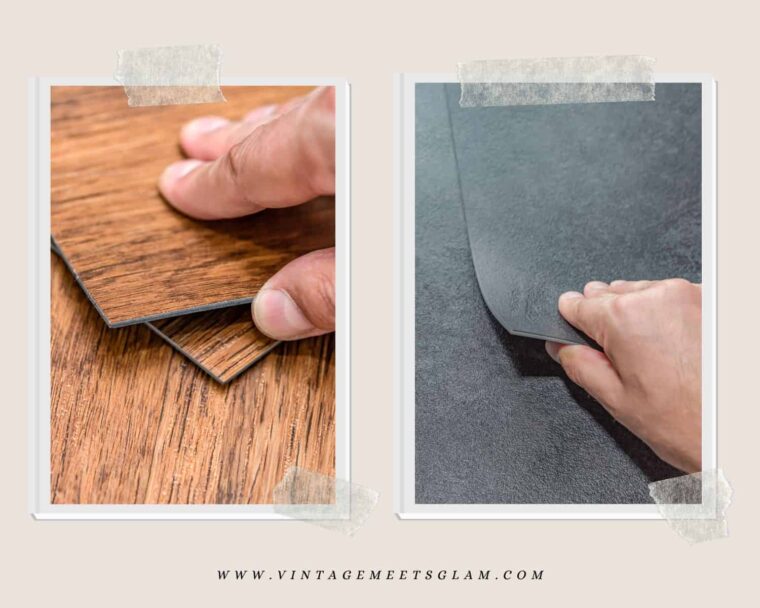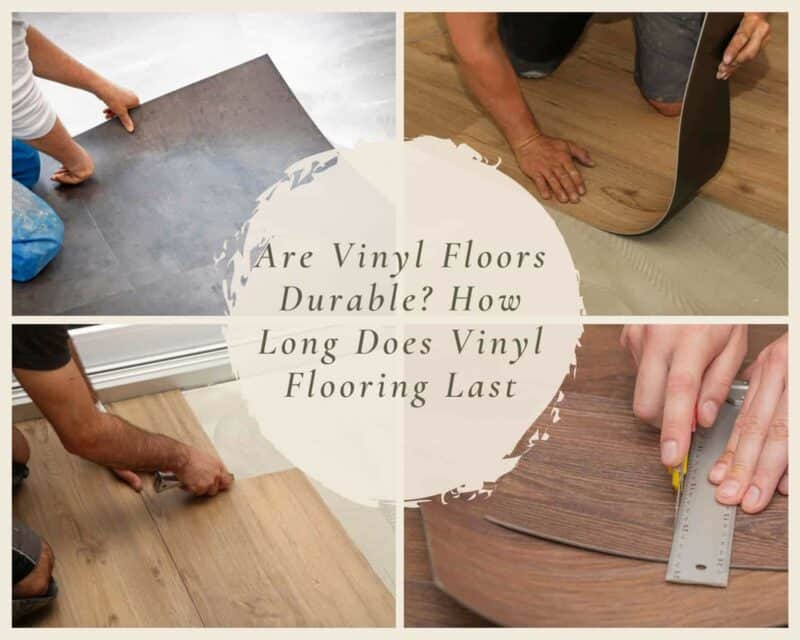Vinyl flooring has become increasingly popular in the last few years. Generations of homeowners find this flooring appealing since it is easy to clean and has a nice appearance for any space.
However, many want to know how long does vinyl flooring last? This seems like a simple question, but it is complicated. Like all flooring options, several factors determine how long your vinyl flooring will last. Here, we will discuss the factors that dictate how long vinyl will perform.
How to care for vinyl floors.
Homeowners often choose vinyl floors. They’re affordable, durable, and easy to clean and maintain. The key is to choose the right type for your space.
Here’s how to care for vinyl floors:
- Get scratches out of your vinyl floor
Get scratches out your vinyl floor by rubbing them over them with an emery board or fine sandpaper (150-grit). Thoroughly clean away any dust before applying a coat of clear lacquer spray paint (make sure the label says it’s safe for use on vinyl). Let dry thoroughly before walking on the area again to prevent paint from smearing onto adjacent floor areas.
- Clean up spills immediately
Spills should be cleaned immediately, so they do not become permanent stains on your flooring. If you notice a spill before it dries, use a damp cloth or paper towels to wipe up the liquid. Cleaning up after an accident is important because once a stain has dried, it may be impossible to remove without damaging the flooring itself (i.e., cleaning chemicals could cause damage if used too aggressively).
- Remove crayon marks and discoloration
Vinyl floors can be cleaned using mild soap and warm water or with a cleaner specifically designed for vinyl floors. You may have to test different cleaners on an inconspicuous area before using them on larger areas of your flooring.
- Clean up after pets
If you have dogs or cats, it’s essential to clean up after them. The best way to keep them from scratching at the floor is by putting down carpet runners or rugs that they can’t get into trouble with. Vacuum your floor regularly because pet hair can accumulate on the surface of the flooring and scratch it off as the vacuum pulls it up.
How Long Should You Wait Before Installing Vinyl Flooring?
There’s no set time frame; it depends on the type of vinyl flooring you choose and the condition of the subfloor beneath it. If you’re installing new tile over an existing tile floor, wait until the grout has dried completely before installing new vinyl tiles. Otherwise, you’ll probably have trouble keeping them in place as they expand and contract with changes in temperature and humidity levels.

How Long Does Vinyl Flooring Last?
The average lifespan of a luxury vinyl tile or sheet floor is 15-25 years. Although you may find some manufacturers claim their product is designed to last up to 50 years, these estimates are only applicable in ideal conditions with low traffic and minimal exposure to sunlight.
In reality, the average life expectancy of a luxury vinyl tile or sheet floor is between 20 and 25 years. If you’re installing your new flooring in a high-traffic area, such as a commercial office building, you may have to replace it before it reaches the end of its expected lifetime.
An important factor impacting the longevity of your luxury vinyl sheet flooring is how much direct sunlight the room receives. For example, suppose your kitchen floor receives lots of sun exposure throughout the day. In that case, it will likely become damaged more quickly than one installed in an interior hallway that gets little exposure to sunlight.
What Factors Affect Vinyl Flooring’s Lifespan?
The lifespan of vinyl flooring depends on many factors:
Traffic
Vinyl floors can withstand a great deal of foot traffic; however, too much traffic can cause damage to your floor. Vinyl floors are not designed for heavy-duty industrial use, so if you have a business or other large facility with lots of foot traffic, consider installing concrete over your existing vinyl instead of replacing it with new sheets.
Cleaning Frequency
Vinyl floors tend to wear out faster when they’re cleaned too frequently. This is especially true if you use a high-powered vacuum or hard brush on your floors. The constant friction can damage the surface of your vinyl flooring, causing it to peel or wear out prematurely.
The best way to avoid premature wear on your vinyl flooring is by keeping it clean without damage. Use a soft-bristled broom or dust mop to sweep up dirt and debris before vacuuming with a soft brush attachment. You should also avoid using commercial cleaners or washing machines on your floors as these products can damage their finish over time.
Moisture
To prevent damage from moisture, make sure your home has adequate ventilation. Check for moisture problems by placing a sheet of paper on the floor near water sources such as pipes or showers. If the paper comes up dirty after 24 hours, there may be a moisture problem in your home that needs to be resolved before installing new vinyl floors.
Vinyl Flooring Thickness
Thickness plays a key role in determining the life span of your new flooring material. Vinyl flooring comes in different thicknesses, each with its benefits and drawbacks. For instance, thinner vinyl offers greater flexibility, while thicker vinyl can be more resistant to scratches or tears. However, thicker floors are more expensive than thinner ones and require special installation equipment.
Vinyl Flooring Style
The style you choose for your vinyl floors also affects their life span.
Some styles are more resilient due to construction materials or design elements, such as joints between tiles or sheets. For instance, interlocking tiles are more durable than solid sheets because they’re less likely to crack or break under pressure from heavy objects such as furniture or appliances (e.g., washing machines).
Conclusion
Under ideal conditions, you can expect your vinyl flooring to last 20-50 years. That said, there are certain things you can do to improve the longevity of your new flooring. For one thing, it is important to protect your floor from scratches and stains by using the recommended accessories such as an under pad for carpeted rooms to protect it from dampness, heavy furniture, and foot traffic. After all, no matter how durable the vinyl flooring is, it will still show signs of wear and tear with time from these things. As such, it is also strongly recommended that you wax or polish your floor every month to maintain its sheen and prolong its life.



